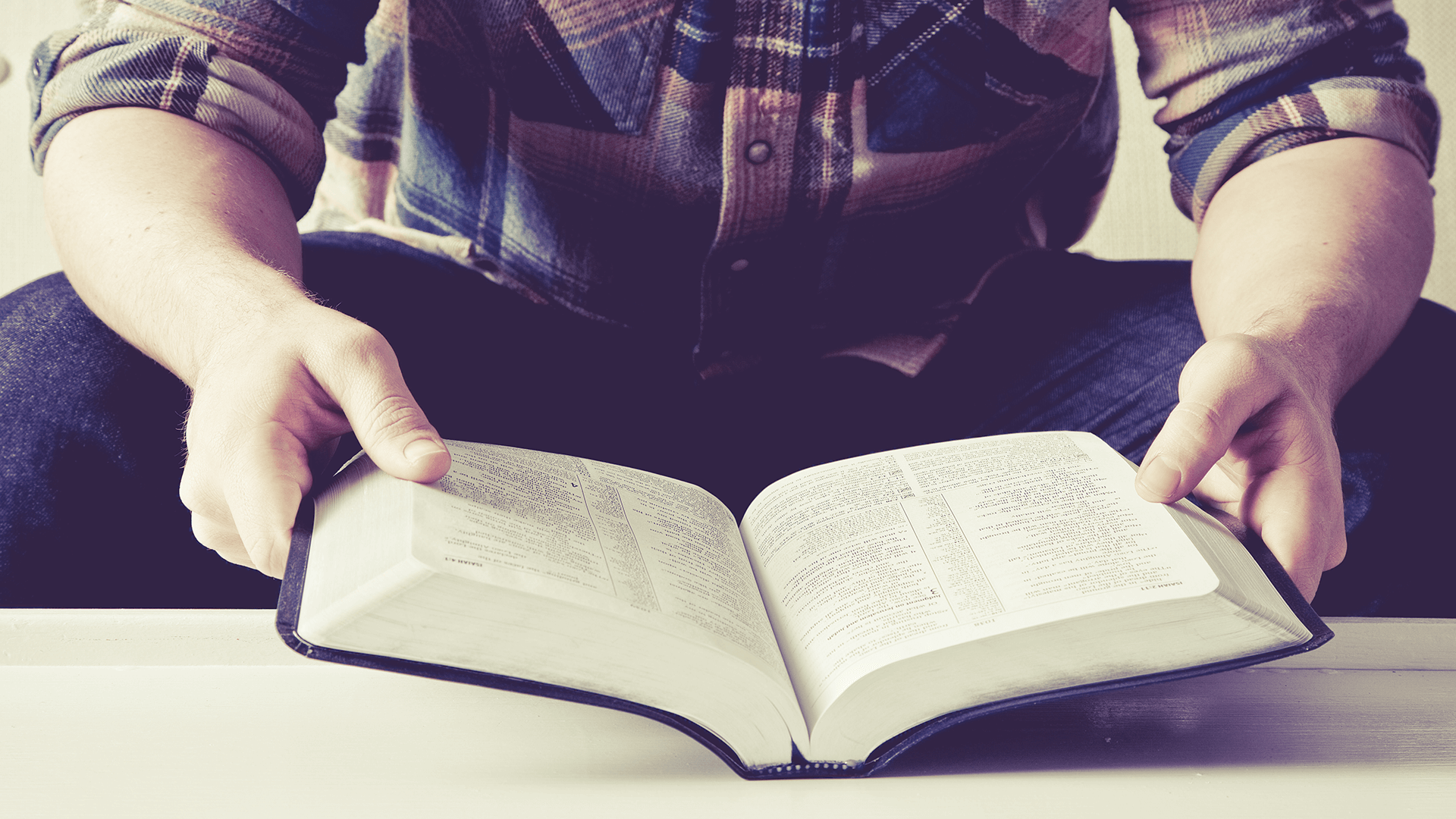July 29th, 2022
July 29, 2022

Today's Reading:
New Testament & Psalms Plan: Acts 21:37–22:21, Psalm 89:1–5
Entire Bible Plan: Acts 21:37–22:21, Psalm 89:1–5, 2 Chronicles 31–32
Download NT & Psalms Plan Download Entire Bible Plan
Paul's Defense before the Jerusalem Mob
As he was about to be brought into the barracks, Paul said to the commander, "Am I allowed to say something to you?"
He replied, "You know how to speak Greek? Aren't you the Egyptian who started a revolt some time ago and led four thousand men of the Assassins into the wilderness?"
Paul said, "I am a Jewish man from Tarsus of Cilicia, a citizen of an important city. Now I ask you, let me speak to the people."
After he had given permission, Paul stood on the steps and motioned with his hand to the people. When there was a great hush, he addressed them in Aramaic:
"Brothers and fathers, listen now to my defense before you." When they heard that he was addressing them in Aramaic, they became even quieter. He continued, "I am a Jew, born in Tarsus of Cilicia but brought up in this city, educated at the feet of Gamaliel according to the strictness of our ancestral law. I was zealous for God, just as all of you are today. I persecuted this Way to the death, arresting and putting both men and women in jail, as both the high priest and the whole council of elders can testify about me. After I received letters from them to the brothers, I traveled to Damascus to arrest those who were there and bring them to Jerusalem to be punished.
Paul's Testimony
"As I was traveling and approaching Damascus, about noon an intense light from heaven suddenly flashed around me. I fell to the ground and heard a voice saying to me, 'Saul, Saul, why are you persecuting me?'
"I answered, 'Who are you, Lord?'
"He said to me, 'I am Jesus of Nazareth, the one you are persecuting.' Now those who were with me saw the light, but they did not hear the voice of the one who was speaking to me.
"I said, 'What should I do, Lord?'
"The Lord told me, 'Get up and go into Damascus, and there you will be told everything that you have been assigned to do.'
"Since I couldn't see because of the brightness of the light, I was led by the hand by those who were with me, and went into Damascus. Someone named Ananias, a devout man according to the law, who had a good reputation with all the Jews living there, came and stood by me and said, 'Brother Saul, regain your sight.' And in that very hour I looked up and saw him. And he said, 'The God of our ancestors has appointed you to know his will, to see the Righteous One, and to hear the words from his mouth, since you will be a witness for him to all people of what you have seen and heard. And now, why are you delaying? Get up and be baptized, and wash away your sins, calling on his name.'
"After I returned to Jerusalem and was praying in the temple, I fell into a trance and saw him telling me, 'Hurry and get out of Jerusalem quickly, because they will not accept your testimony about me.'
"But I said, 'Lord, they know that in synagogue after synagogue I had those who believed in you imprisoned and beaten. And when the blood of your witness Stephen was being shed, I stood there giving approval and guarding the clothes of those who killed him.'
"He said to me, 'Go, because I will send you far away to the Gentiles.'"
Scripture quotations have been taken from the Christian Standard Bible®, Copyright © 2017 by Holman Bible Publishers. Used by permission. Christian Standard Bible® and CSB® are federally registered trademarks of Holman Bible Publishers.
Perplexity about God's Promises
A Maskil of Ethan the Ezrahite.
I will sing about the Lord's faithful love forever;
I will proclaim your faithfulness to all generations
with my mouth.
For I will declare,
"Faithful love is built up forever;
you establish your faithfulness in the heavens."
The Lord said,
"I have made a covenant with my chosen one;
I have sworn an oath to David my servant:
'I will establish your offspring forever
and build up your throne for all generations.'" Selah
Lord, the heavens praise your wonders—
your faithfulness also—
in the assembly of the holy ones.
Scripture quotations have been taken from the Christian Standard Bible®, Copyright © 2017 by Holman Bible Publishers. Used by permission. Christian Standard Bible® and CSB® are federally registered trademarks of Holman Bible Publishers.
Removal of Idolatry
When all this was completed, all Israel who had attended went out to the cities of Judah and broke up the sacred pillars, chopped down the Asherah poles, and tore down the high places and altars throughout Judah and Benjamin, as well as in Ephraim and Manasseh, to the last one. Then all the Israelites returned to their cities, each to his own possession.
Offerings for Levites
Hezekiah reestablished the divisions of the priests and Levites for the burnt offerings and fellowship offerings, for ministry, for giving thanks, and for praise in the gates of the camp of the Lord, each division corresponding to his service among the priests and Levites. The king contributed from his own possessions for the regular morning and evening burnt offerings, the burnt offerings of the Sabbaths, of the New Moons, and of the appointed feasts, as written in the law of the Lord. He told the people who lived in Jerusalem to give a contribution for the priests and Levites so that they could devote their energy to the law of the Lord. When the word spread, the Israelites gave liberally of the best of the grain, new wine, fresh oil, honey, and of all the produce of the field, and they brought in an abundance, a tenth of everything. As for the Israelites and Judahites who lived in the cities of Judah, they also brought a tenth of the herds and flocks, and a tenth of the dedicated things that were consecrated to the Lord their God. They gathered them into large piles. In the third month they began building up the piles, and they finished in the seventh month. When Hezekiah and his officials came and viewed the piles, they blessed the Lord and his people Israel.
Hezekiah asked the priests and Levites about the piles. The chief priest Azariah, of the household of Zadok, answered him, "Since they began bringing the offering to the Lord's temple, we have been eating and are satisfied and there is plenty left over because the Lord has blessed his people; this abundance is what is left over."
Hezekiah told them to prepare chambers in the Lord's temple, and they prepared them. The offering, the tenth, and the dedicated things were brought faithfully. Conaniah the Levite was the officer in charge of them, and his brother Shimei was second. Jehiel, Azaziah, Nahath, Asahel, Jerimoth, Jozabad, Eliel, Ismachiah, Mahath, and Benaiah were deputies under the authority of Conaniah and his brother Shimei by appointment of King Hezekiah and of Azariah the chief official of God's temple.
Kore son of Imnah the Levite, the keeper of the East Gate, was over the freewill offerings to God to distribute the contribution to the Lord and the consecrated things. Eden, Miniamin, Jeshua, Shemaiah, Amariah, and Shecaniah in the cities of the priests were to distribute it faithfully under his authority to their brothers by divisions, whether large or small. In addition, they distributed it to males registered by genealogy three years old and above; to all who would enter the Lord's temple for their daily duty, for their service in their responsibilities according to their divisions. They distributed also to those recorded by genealogy of the priests by their ancestral families and the Levites twenty years old and above, by their responsibilities in their divisions; to those registered by genealogy—with all their dependents, wives, sons, and daughters—of the whole assembly (for they had faithfully consecrated themselves as holy); and to the descendants of Aaron, the priests, in the common fields of their cities, in each and every city. There were men who were registered by name to distribute a portion to every male among the priests and to every Levite recorded by genealogy.
Hezekiah did this throughout all Judah. He did what was good and upright and true before the Lord his God. He was diligent in every deed that he began in the service of God's temple, in the instruction and the commands, in order to seek his God, and he prospered.
Sennacherib's Invasion
After Hezekiah's faithful deeds, King Sennacherib of Assyria came and entered Judah. He laid siege to the fortified cities and intended to break into them. Hezekiah saw that Sennacherib had come and that he planned war on Jerusalem, so he consulted with his officials and his warriors about stopping up the water of the springs that were outside the city, and they helped him. Many people gathered and stopped up all the springs and the stream that flowed through the land; they said, "Why should the kings of Assyria come and find abundant water?" Then Hezekiah strengthened his position by rebuilding the entire broken-down wall and heightening the towers and the other outside wall. He repaired the supporting terraces of the city of David, and made an abundance of weapons and shields.
He set military commanders over the people and gathered the people in the square of the city gate. Then he encouraged them, saying, "Be strong and courageous! Don't be afraid or discouraged before the king of Assyria or before the large army that is with him, for there are more with us than with him. He has only human strength, but we have the Lord our God to help us and to fight our battles." So the people relied on the words of King Hezekiah of Judah.
Sennacherib's Servant's Speech
After this, while King Sennacherib of Assyria with all his armed forces besieged Lachish, he sent his servants to Jerusalem against King Hezekiah of Judah and against all those of Judah who were in Jerusalem, saying, "This is what King Sennacherib of Assyria says: 'What are you relying on that you remain in Jerusalem under siege? Isn't Hezekiah misleading you to give you over to death by famine and thirst when he says, "The Lord our God will keep us from the grasp of the king of Assyria"? Didn't Hezekiah himself remove his high places and his altars and say to Judah and Jerusalem, "You must worship before one altar, and you must burn incense on it"?
"'Don't you know what I and my predecessors have done to all the peoples of the lands? Have any of the national gods of the lands been able to rescue their land from my power? Who among all the gods of these nations that my predecessors completely destroyed was able to rescue his people from my power, that your God should be able to deliver you from my power? So now, don't let Hezekiah deceive you, and don't let him mislead you like this. Don't believe him, for no god of any nation or kingdom has been able to rescue his people from my power or the power of my predecessors. How much less will your God rescue you from my power!'"
His servants said more against the Lord God and against his servant Hezekiah. He also wrote letters to mock the Lord, the God of Israel, saying against him:
Just like the national gods of the lands that did not rescue their people from my power, so Hezekiah's God will not rescue his people from my power.
Then they called out loudly in Hebrew to the people of Jerusalem, who were on the wall, to frighten and discourage them in order that he might capture the city. They spoke against the God of Jerusalem like they had spoken against the gods of the peoples of the earth, which were made by human hands.
Deliverance from Sennacherib
King Hezekiah and the prophet Isaiah son of Amoz prayed about this and cried out to heaven, and the Lord sent an angel who annihilated every valiant warrior, leader, and commander in the camp of the king of Assyria. So the king of Assyria returned in disgrace to his land. He went to the temple of his god, and there some of his own children struck him down with the sword.
So the Lord saved Hezekiah and the inhabitants of Jerusalem from the power of King Sennacherib of Assyria and from the power of all others. He gave them rest on every side. Many were bringing an offering to the Lord to Jerusalem and valuable gifts to King Hezekiah of Judah, and he was exalted in the eyes of all the nations after that.
Hezekiah's Illness and Pride
In those days Hezekiah became sick to the point of death, so he prayed to the Lord, who spoke to him and gave him a miraculous sign. However, because his heart was proud, Hezekiah didn't respond according to the benefit that had come to him. So there was wrath on him, Judah, and Jerusalem. Then Hezekiah humbled himself for the pride of his heart—he and the inhabitants of Jerusalem—so the Lord's wrath didn't come on them during Hezekiah's lifetime.
Hezekiah's Wealth and Works
Hezekiah had abundant riches and glory, and he made himself treasuries for silver, gold, precious stones, spices, shields, and every desirable item. He made warehouses for the harvest of grain, new wine, and fresh oil, and stalls for all kinds of cattle, and pens for flocks. He made cities for himself, and he acquired vast numbers of flocks and herds, for God gave him abundant possessions.
This same Hezekiah blocked the upper outlet of the water from the Gihon Spring and channeled it smoothly downward and westward to the city of David. Hezekiah succeeded in everything he did. When the ambassadors of Babylon's rulers were sent to him to inquire about the miraculous sign that happened in the land, God left him to test him and discover what was in his heart.
Hezekiah's Death
As for the rest of the events of Hezekiah's reign and his deeds of faithful love, note that they are written in the Visions of the Prophet Isaiah son of Amoz, and in the Book of the Kings of Judah and Israel. Hezekiah rested with his ancestors and was buried on the ascent to the tombs of David's descendants. All Judah and the inhabitants of Jerusalem paid him honor at his death. His son Manasseh became king in his place.



Login To Leave Comment